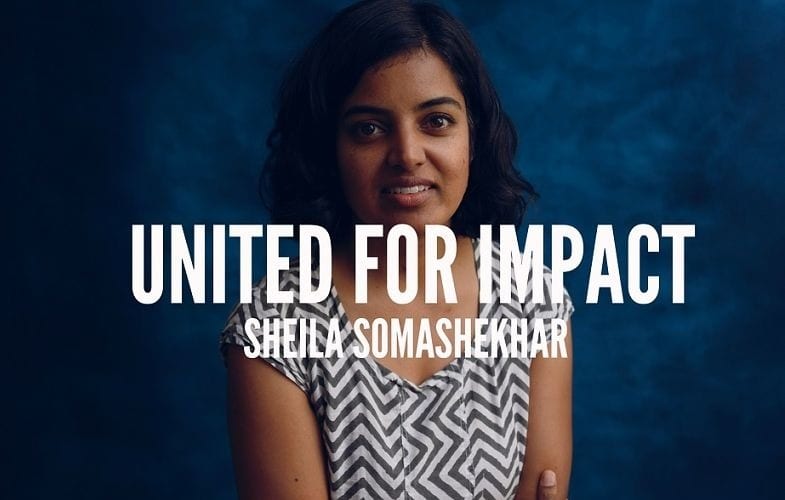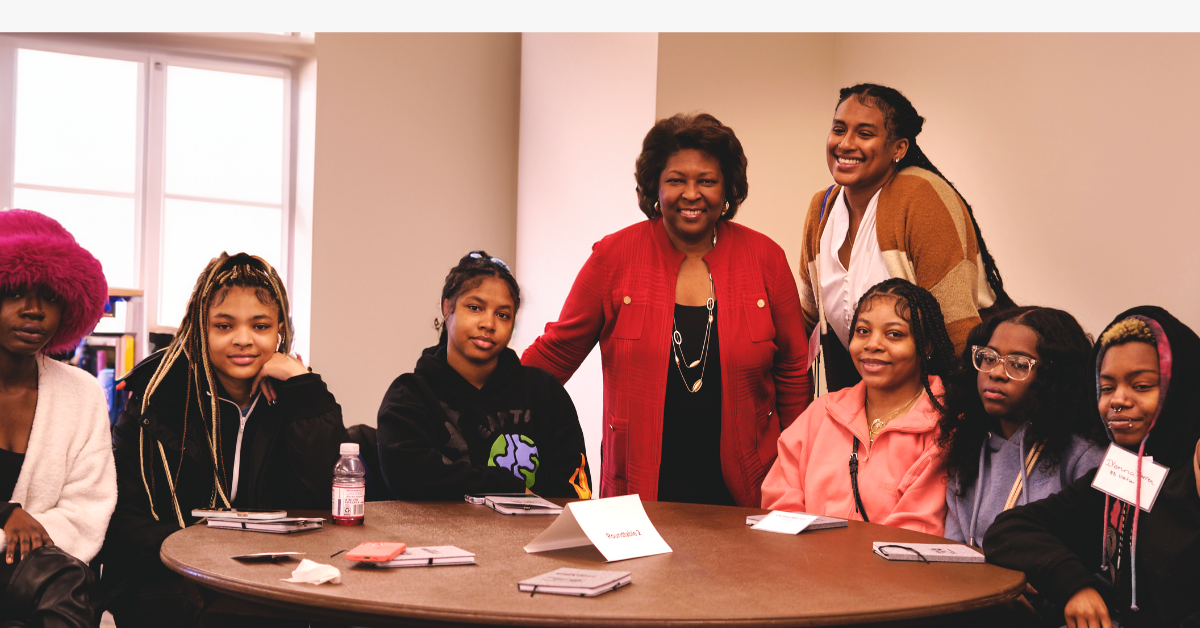
For more than 40 years, United Way of the National Capital Area has worked diligently to change the lives of people and families in our local area. Nearly five years ago, we launched our Community Commitment to tackle complex, interconnected issues like school graduation, poverty, and poor health. In the time since we launched the Community Commitment, we’ve seen phenomenal results. There is absolutely nothing more rewarding than watching lives improve and children thrive. Positive impact across our region
While we’ve celebrated the positive impact across our region we don’t always get the opportunity to celebrate the individuals working behind the scenes of the organization. Without the support of our staff, United Way NCA could not reach as many lives in the community. Our interview series “United for Impact” showcases just how much goes into the work at your local United Way.
As the organization gears up for its 5th annual Project Homeless Connect, we sat down with Sheila Somashekhar, Director of Community Impact to discuss her nearly five years with United Way NCA and the evolution of her involvement in Project Homeless Connect since it’s conception.
Sean: How did you come to United Way?
Sheila: I had been in New York City for six years working in community planning, social justice of different kinds, housing, sustainability planning- that kind of thing, and the common thread in that was economic stability. I actually moved to DC just to be closer to home, I didn’t have anything lined up at the time. And so, a couple of us came on board the same day! It was crazy, that first year. In that first year, we got the community schools to work together, we got the financial empowerment center work together.
Sean: You mentioned this through-line of economic stability—where does that connect with you and why is that something you’ve stuck with for so long.
Sheila: Oof. I mean for me I just feel like the systems are stacked against people of modest means and in favor of people who already have resources. There are just so many ways in which that plays out and so any work that sort of turns that upside down is interesting to me and feels worth pursuing. The fact that United Way was creating space for that resonated for me. You know, it suits what I think change needs to look like in a lot of ways. Also my personality, you know I like putting people together around a common agenda.
Sean: So how does that tie into your work with Project Homeless Connect?
Sheila: To be honest, it was kind of a hard sell for me that first year. I wasn’t totally clear on what the impact would be if it would work or anything. I was fresh to all this and United Way was fresh to this in a lot of ways. We basically got a group together of people who thought it was a good idea to do this. For me, that was like an awesome learning journey. Just learning about the many organizations that not just deliver services, but end homelessness. And you know when we brought all those folks in one room, there was just so much energy and ideas around what we could make meaning out of a one-day event. Everybody has a right to be housed and we all have a role to play.
Sean: So, from your position now, and how you have overseen Project Homeless Connect, what do you think is the recurring barrier for people experiencing homelessness to get to housing what would you say is that barrier?
Sheila: I mean, availability of housing in the district, of truly affordable housing for people with the lowest of incomes, is what needs to change. You know for some people money is just the barrier, and having a place to live is expensive in DC. And for other people—yeah there are health barriers, mental health barriers, that kind of thing, but there’s housing that we could be creating in the city that supports people on wherever they are on the spectrum and so we need to do that.



